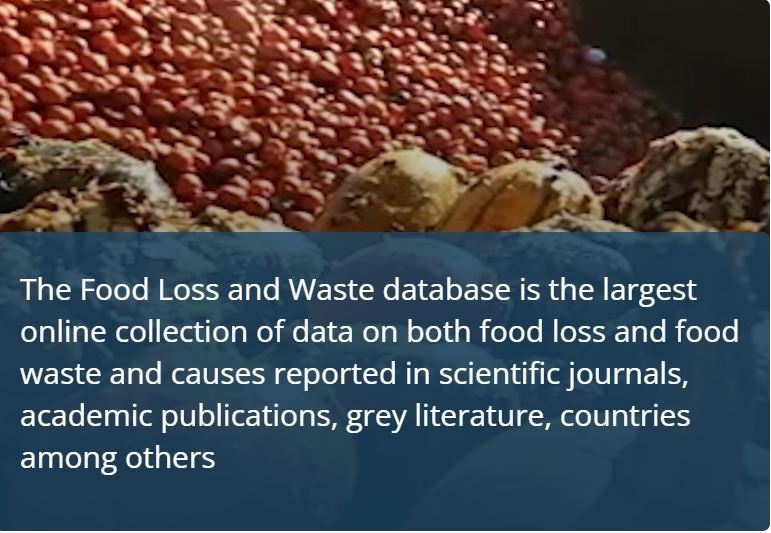PURPOSE: In 2019, the 74th United Nations General Assembly designated 29 September as the International Day of Awareness of Food Loss and Waste (resolution A/RES/74/209), recognizing the fundamental role that sustainable food production plays in promoting food security and nutrition. Reducing food losses and waste is essential in a world where the number of people affected by hunger has been slowly on the rise since 2014, and tons and tons of edible food are lost and/or wasted every day. Food loss and waste undermine the sustainability of our food systems.
FORUM: “Stop Food Loss and waste, for the people, for the planet.” International Day of Awareness of Food Loss and Waste 2024. Reducing food loss and waste is crucial for improving food security and nutrition, promoting efficient resource use, mitigating hunger, protecting the environment, and fostering more equitable distribution of food resources globally. It is a climate solution that can be used by countries and communities to reduce greenhouse gas (GHG) emissions. This year we will continue to promote the reduction of food losses and waste by raising awareness about the magnitude and importance of this phenomenon in social, environmental and financial matters, thus contributing to guaranteeing food security for all and reducing gas emissions. Why is reducing food loss and waste important in contributing to agrifood systems transformation?. Follow the hashtags: #FLWday, #FoodWaste, #29september, #FoodLoss.
PUBLICATIONS: The UNEP’s Food Waste Index Report 2024 builds upon its predecessor in three key ways: Firstly, it incorporates vastly expanded data points from around the world, providing a significantly more robust global and national estimates, detailed in Chapter 2 of the main report. Secondly, it expands on the SDG 12.3 food waste measurement methodology introduced in the 2021 report, offering enhanced guidance on measurement across retail, food service, and household sectors. This additional guidance delves into various methodologies, their strengths and limitations, and strategies for prioritising sub-sectors for measurement, as explored in Chapter 3. Lastly, the report transitions from focusing solely on food waste measurement to exploring solutions for food waste reduction. The chapter examines effective approaches to reducing food waste globally, with a spotlight on public-private partnerships in this 2024 report. Read the Full Food Waste Index report 2024!
EVENTS: On September 27th at 13:30 hrs CEST; a virtual event to mark the International Day of Awareness of Food Loss and Waste 2024 will be convened by the FAO and the UNEP; This event will bring together diverse voices in the region to promote a message of unity around the transformation of food systems, moving towards a more sustainable and resilient future Join the call to action for public and private entities, and consumers, to work together to cut food loss and waste. Together we can work towards enhancing the efficient use of natural resources, mitigating climate change, and supporting food security and nutrition.
PODCASTS: Reducing food losses and waste is essential in a world where the number of people affected by hunger has been slowly on the rise since 2014, and tons and tons of edible food are lost and/or wasted every day. Listen to the Audio-Podcasts!
CAMPAIGN MATERIALS: Make #NotWasting a way of life; Take action, start something. Stop food loss and waste. For the people. For the planet. 9 easy tips to fight food waste. Additional material is available from the asset bank. Explore the Get involved guide.
WHY WE CELEBRATE THE DAY?
HOW TO GET INVOLVED!
PARTNERSHIPS
When food is lost or wasted, all the resources that were used to produce this food - including water, land, energy, labour and capital - go to waste. In addition, the disposal of food loss and waste in landfills, leads to greenhouse gas emissions, contributing to climate change. Food loss and waste can also negatively impact food security and food availability, and contribute to increasing the cost of food. Processing and packaging can play a role in preserving foods, but losses can be caused by inadequate facilities or processing capacity, technical malfunctions or human error, lack of proper process management, excessive trimming to attain a certain aesthetic, and in addition to all these: insufficient economic incentive to prevent these losses. The main areas of opportunity to prevent and reduce food waste at this stage are improving processing practices, finding innovative packaging solutions, and promoting circularity by using by-products and left-over product material for human food.
Several actions can be done, for example
Reduce food waste at home to reduce your climate footprint.
Speak up, and help make wasting food socially unaccepable.Speak up, and help make wasting food socially unaccepable.
Engage students in food loss and waste reduction activities at schools, on college campuses and in youth events. This way, young people can learn about food loss ans waste and become proactive in reducing food waste.
Spread the key messages through your participation in talk show, discussion panels, media briefing and radio or TV Call-in shows.
Organize an online exercise class, such as aerobics, yoha or Zumba to promote food loss and food waste reduction.
Encourage people to get involved in their communities.
The International Day of Awareness on Food Loss and Waste Reduction is hosted by the United Nations Food and Agriculture Organization (FAO); The World Food Programme (WFP); The International Fund for Agriculture Development (IFAD); The UN Environment Programme; The World Bank; The World Intellectual Property Organization (WIPO), the UNECE and the World Food Summit.
With the collaboration the International Food Waste Coalition (IFWC), the Think Tank for Food (FoodTank), the Food Recovery Network, the Rethink food waste through Economics and Data (ReFED), the BBC GOOD FOOD, the Forgotten Harvest, the CityHarvest, the Second Harvest, the Felix Project and the Stop Wasting Food movement.
With the Participation of Agri-food communities; The Civil Society Organizations; The Non-Governmental Organizations, The Researchers and Academia.




